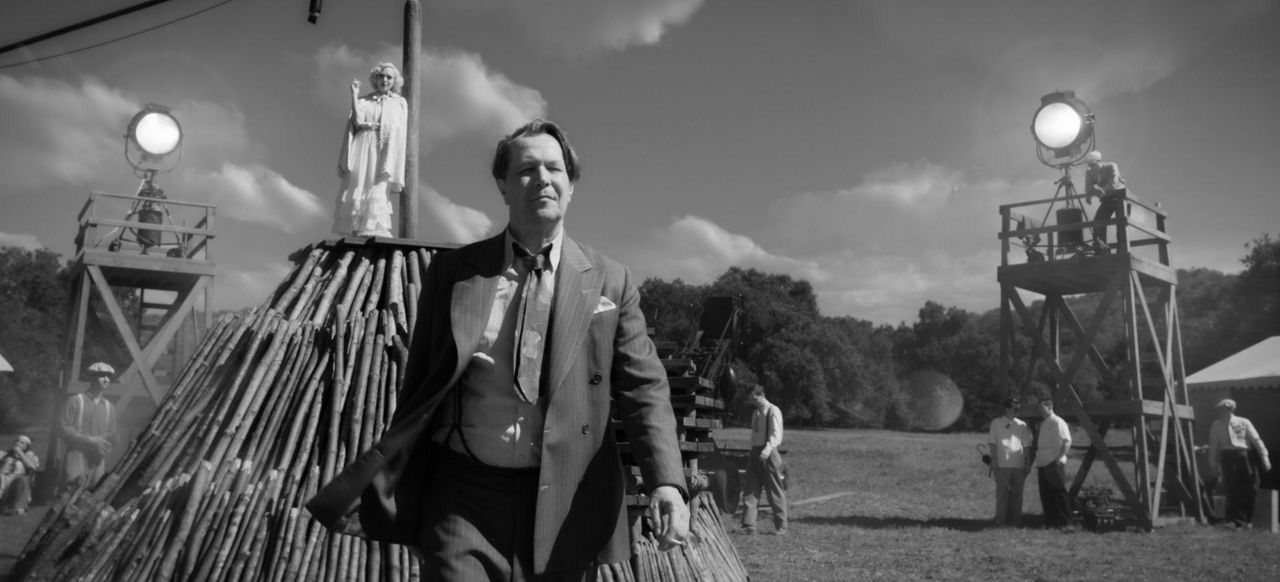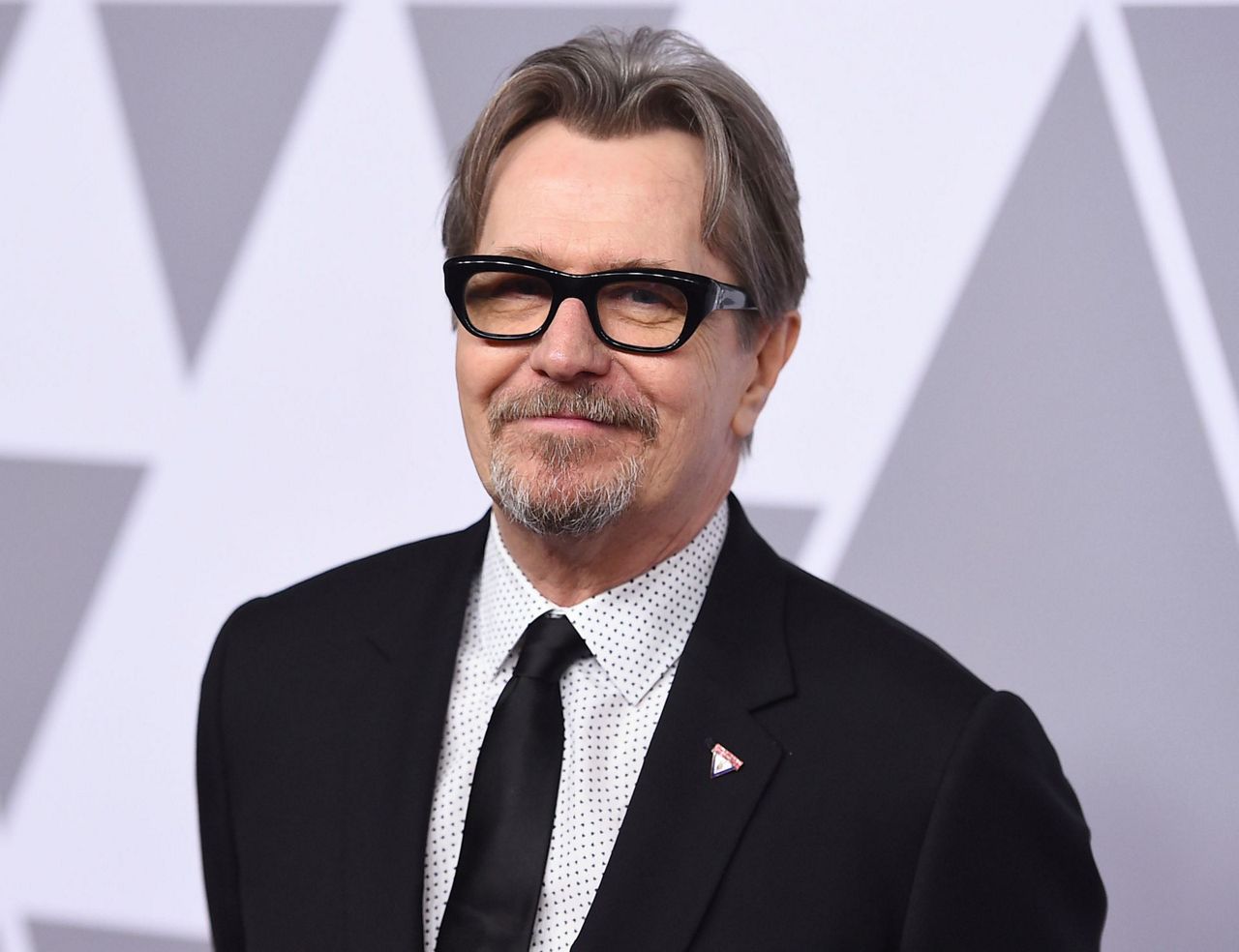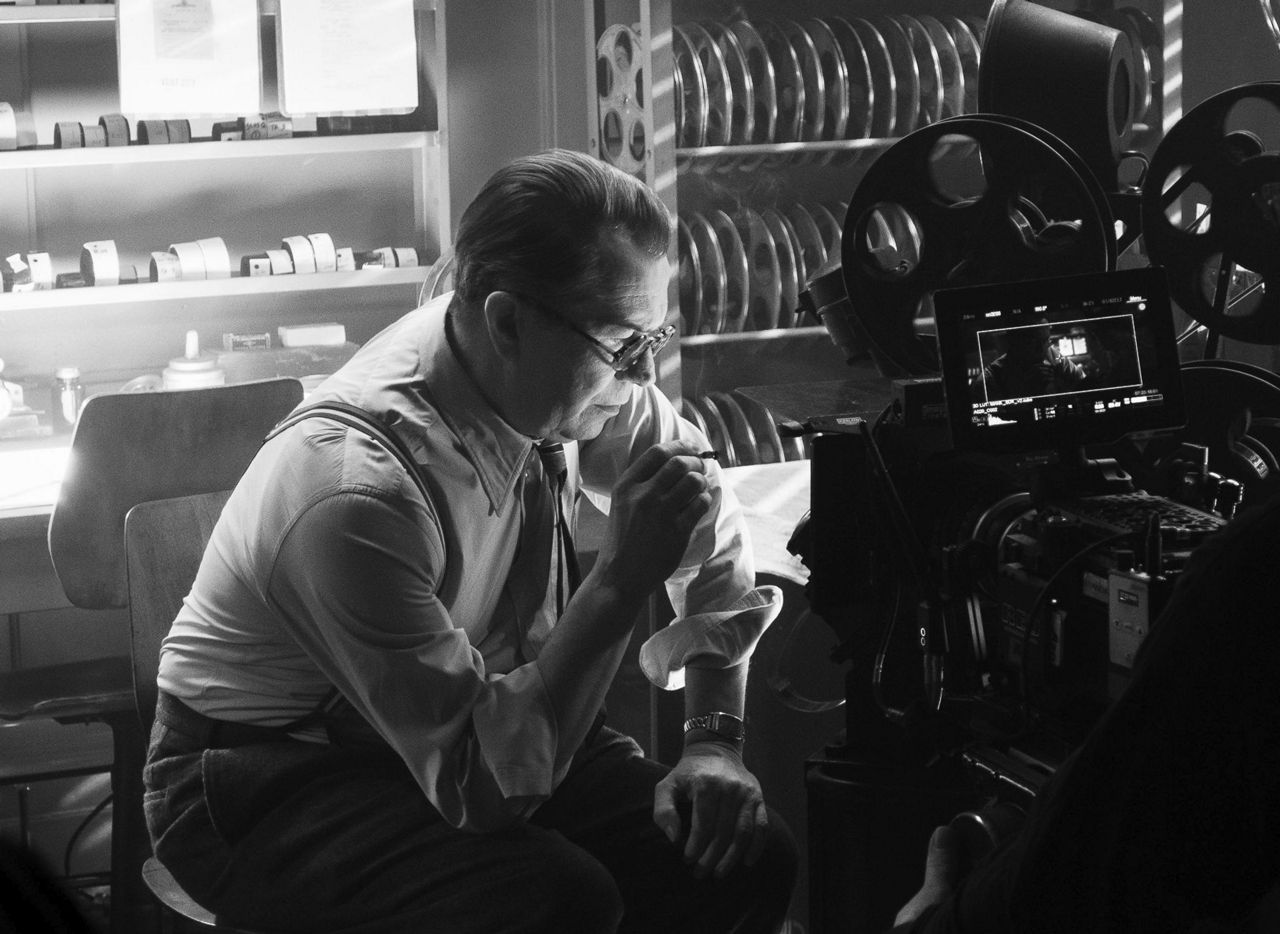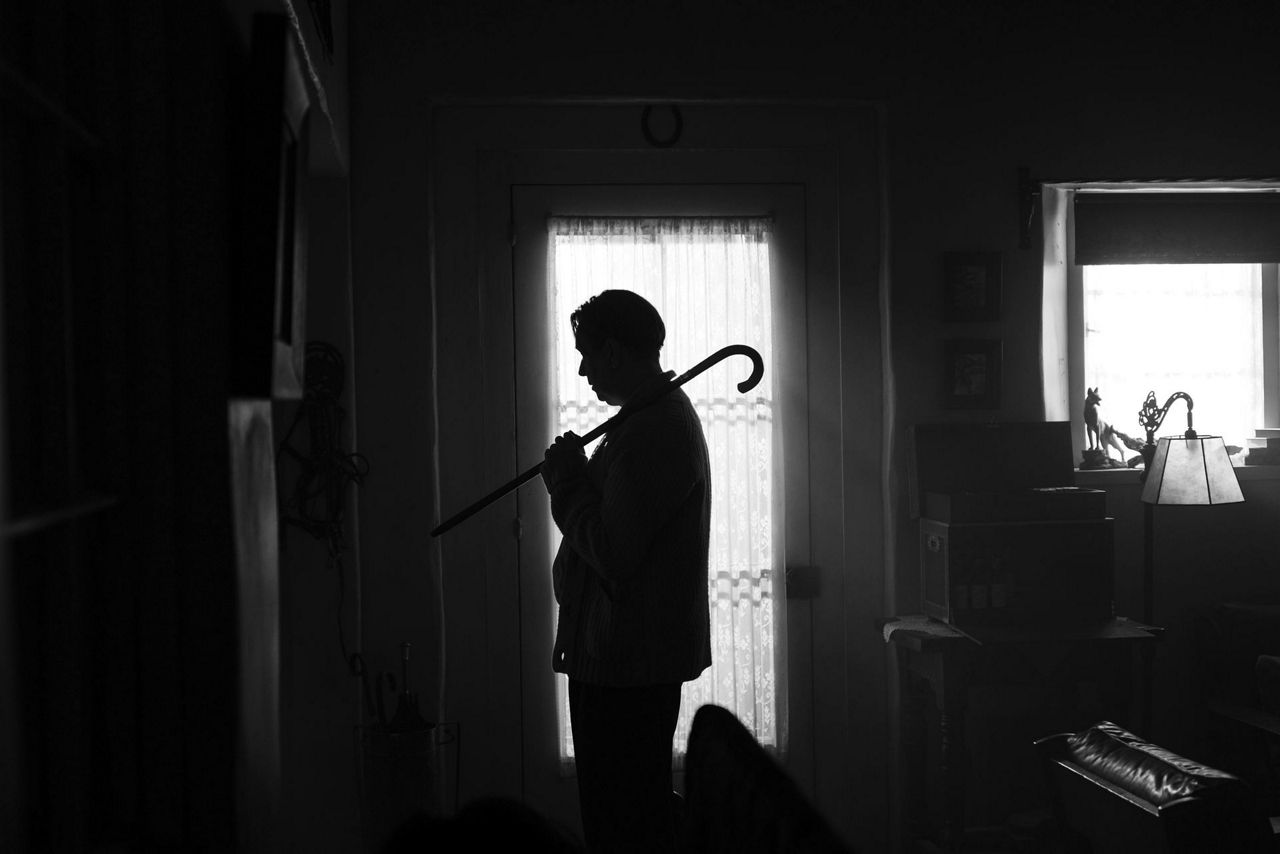NEW YORK (AP) — The first time Gary Oldman and David Fincher met was in London 1990, when Fincher was looking to cast him in “Alien 3.”
“And he had the sense to say no,” Fincher recalls.
In the 30 years since then, they have never been far out of orbit from one another. They consider one another friends. They share an ex-wife, the mother of their children. But Fincher cast Oldman’s manager, Douglas Urbanski (as Larry Summers in ’The Social Network”), before he called up Oldman about another role.
“There are some directors who get stars in their eyes and say, ‘We must do something.’ Mainly you never hear from them again,” Oldman says, chuckling. “David’s the sort of director that if you’re right for something, he’ll cast you. And if you’re not, he won’t.”
While some have quibbled that Oldman, 62, is a little old to play Herman Mankiewicz — he wrote “Citizen Kane” more than a decade before drinking himself to death at the age of 55 -- Oldman is so tailored to the role that he wears it like the cocktail-soaked, day-old, rumpled suit Mank flops around in. Fincher’s “Mank” is such a dense and dazzling Hollywood time machine that all the conversation it’s spawned — on the authorship of “Citizen Kane,” on “auteur” directors, on its ‘30s political backdrop — has sometimes overlooked the incredible balancing act at its center. It’s a performance always teetering on the edge, poised between inebriation and lucidity, ’40s-style zip and modern-day naturalism.
“Mank, it’s in the eyes. It’s like a different head,” says Oldman speaking by phone from London. “It’s a different motor that’s moving. It’s what I call a character’s running condition. It's finding the frequency of the man.”
“Mank,” which debuted Friday on Netflix, is about a little-celebrated figure of Hollywood history: a sharped-tongued newspaperman turned studio hack who worked often without credit (the black-and-white to Technicolor switch of “The Wizard of Oz” was his idea). But despite a penchant for self-sabotage and liquor, Mankiewicz — relying on his own history with William Randolph Heart (Charles Dance in the film) as a kind of court jester to Hollywood's most powerful — turned in a draft for what's generally considered the greatest film of all time.
“It was never our intention to rectify some wrong. It’s just a character study of a man who was self-emulating and who did it in a rather witty way," says Fincher, whose father, Jack Fincher, wrote the script. “I’ve got nothing against Orson Welles. Orson Welles was a genius and if everybody doesn’t know that, I don’t know what to say.”
In crafting the portrait of Mankiewicz, Fincher wanted Oldman as himself. No wigs, no special costume. For Oldman — who had recently buried under prosthetics and make-up as Winston Churchill in “Darkest Hour,” winning him the best actor Oscar — that made him nervous.
“I am partial to a disguise. I like to hide. And David wanted no veil between me and the audience,” says Oldman. “He said: ‘I want you as naked as you’ve ever been.’ It wasn’t that I resisted that. I was just a little uneasy with it at first."
It’s a role that Oldman isn’t so terribly far from, in some respects. He's well acquainted with alcoholism. Oldman's brutally honest autobiographical film about his working-class London upbringing, “Nil By Mouth,” shot scenes in the very bar his hard-drinking father used to frequent. Oldman was himself once an alcoholic and, like Mank, prone to audacious gambles. Back when he was drinking, Oldman chose between two simultaneous offers — “Waterworld” and “The Scarlet Letter” — with a coin flip. (Rev. Dimmesdale won.)
For Oldman, it meant drawing on “muscle memory.”
“It’s a long time ago now. I’ve been sober almost 24 years. But you remember it, and I certainly brought that to the party,” says Oldman. “Mank said something that struck me to my heart. He said, ‘My critical faculty has prospered at the expense of my talent.’ There’s the longing to write the great play, to write the great novel, and there’s a fear involved there — the fear of trying and failing. I’ve known quite a few drunks who are like that. It’s like they have a critic on their shoulder.”
It was in Alcoholics Anonymous in 1996 that Oldman met his third wife, Donya Fiorentino, a year after she and Fincher had divorced. After five years of marriage, Oldman and Fiorentino also divorced. Oldman received full custody of their two sons, now in their early 20s. (Fincher also eventually gained full custody of his daughter with Fiorentino.) In a court filing in 2001, Fiorentino alleged that Oldman hit her with a telephone, an allegation that Oldman strongly denies. Police investigated and the actor was never charged. Their shared painful past, actor and director say, went unspoken of during their collaboration.
Instead, their work together was of mutual meticulousness. Fincher, long renowned for his obsessive exactitude, found in Oldman a highly detailed actor of deep research capable of subtly manipulating his performance. No director is able to have a whole movie in his head, Fincher says, but Oldman can mentally maintain the whole arc of his character.
“He’s the kind of person, you have the conversation once, and you literally watch his blue eyes click in. It gets stored away, and whatever that thing was magically becomes part of the fabric of everything he does afterward. It’s osmosis," says Fincher. “He’s a sort of behavioral vacuum. You give him data and then that data is processed and comes out as behavior.”
To match the black-and-white period atmosphere, Fincher wanted a style of acting with some of the spirit of the ’30s and ’40s. “Believable but ever so slightly heightened — imperceptible arch,” says Oldman. There’s barely any footage of Mankiewicz talking so Oldman, figuring the apple wouldn’t fall too far from the tree, relied on recordings of Mankiewicz's brother, the “All About Eve” director Joseph Mankiewicz.
Dance has previously suggested Oldman grew a little impatient with Fincher’s proclivity for a lot of takes. (Two scenes, each parties with sprawling conversation, took a week to shoot.) But Oldman says he relished the process — even if it did sometimes drag on.
“You can imagine being on the set and doing a scene for 30 takes and then saying to someone, ‘God, we’ve done this scene a hundred f---ing times.’ Then David with his cherubic smile says, ’Yeah, and we’re going to do it 101,” says Oldman. “Sometimes you feel like the director hasn’t walked away from a scene he hasn’t got. Sometimes you feel like you’re making the day, rather than making the movie. You would never feel that on a Fincher set.”
___
Follow AP Film Writer Jake Coyle on Twitter at: http://twitter.com/jakecoyleAP
Copyright 2020 The Associated Press. All rights reserved. This material may not be published, broadcast, rewritten or redistributed without permission.






